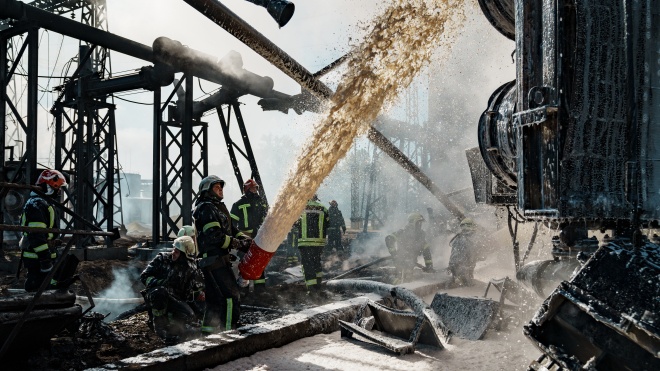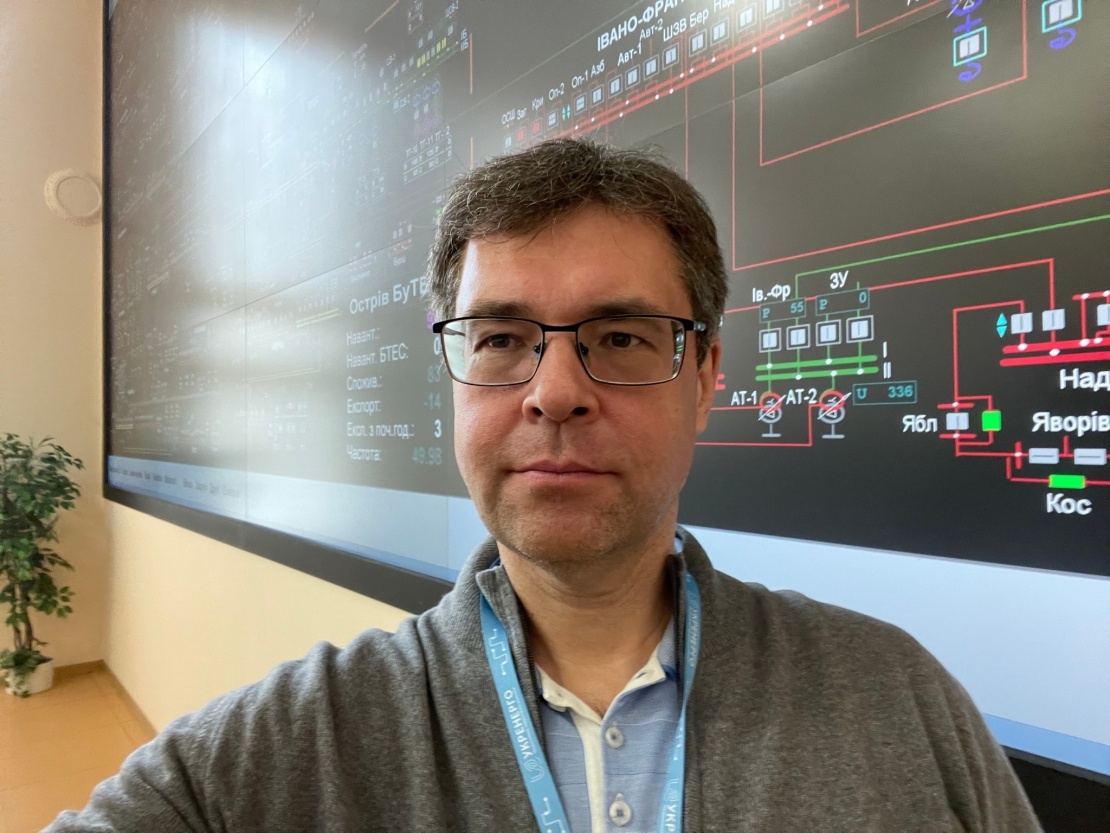What does a third of destroyed power plants mean in practice?
The situation is changing every day — on the one hand, missile attacks continue, on the other — they [power plants] are being repaired and restored. But in fact, approximately 30% of all Ukrainian energy facilities were either captured or damaged by the Russians. They [the Russians] purposefully attack two types of objects. The first ones responsible for generation [production] are thermal power plants and central heating and power plants [CHPPs]. CHPPs provide not only electricity, but also heat in large cities, so attacks on them are very sensitive for us. The second type of facilities are transformer substations that connect different parts of the Ukrainian energy network. They are responsible for delivering electricity to the consumer.
The grid itself has suffered significant damage, and this is more dangerous than generation problems, because we have certain reserves, we can import electricity from Europe, because we are synchronized with the European grid. But if the network is damaged, it is no longer possible to transport electricity. That is, we can have electricity, but we will not be able to deliver it to the regions.
How critical is it that Ukraine is left without the Zaporizhzhia Nuclear Power Plant (ZNPP) ?
The nuclear power plant is important, but not critical. We have enough generation, though part of the generation capacity is currently on scheduled repairs. But even taking this into account, there is enough capacity. I think that, most likely, we will even be able to do without importing electricity from other countries.
Is there a critical limit of power system destruction?
Any system has a certain safety margin. We have quite a large one, and I think that we will not reach a scenario where we will not be able to provide ourselves with electricity at all.
And how quickly can systems be restored after damage?
When something is damaged or destroyed, there are several conditional waves [of recovery]. The first lasts about an hour and is focused on restoring power as quickly as possible due to backup circuits. The second wave can last three to four weeks, and electricians repair what they can — cables, jumpers, simple equipment, switches. But there is still a third stage — it requires complex equipment. Unfortunately, this equipment is never manufactured in advance, but only for specific technical needs and to order. It can last for months, or even longer — there are types of equipment that are manufactured for 1.5-2 years. And it is also expensive — €5-20 million for a transformer substation.
Oleksandr Kharchenko.
We will continue to have problems with such equipment, because there is nowhere to get it quickly. Our partners can help with something, we can buy something. There have already been stories when, after shelling, German energy workers on their day off simply got into their cars and took the equipment we needed to Ukraine. But they cannot bring basic transformers or what they themselves do not have. Because the network in Ukraine is more powerful than in Europe.
Is it possible that some areas will have electricity and others will not?
The strikes on transformer substations are aimed precisely at breaking the Ukrainian energy system. When the system is unified, we can switch different sources and consumers, regulate frequency and voltage with a wide range of tools across the country. The Russians want to split the system, but so far they havenʼt succeeded, and I donʼt think they will.
Can transformer substations be protected by air defense?
Approximately 75% of the attacks are aimed at the transformer network, and now everything that can be done to protect it is being done. Details should not be disclosed.
If there is no electricity in Kyiv, people will go to the west of Ukraine, will the network there cope with higher consumption?
There will be no problems because of this. The safety margin of the energy system is sufficient to compensate for migration flows. The main problem is not electricity, but heat. If you donʼt have electricity for 4 or 6 hours a day, itʼs not a problem. What is a problem is when there is no heat in the cold season, the pipes will freeze and the water supply pipes will burst. Like what happened in Alchevsk in 2006. How can this happen: the heat source does not work in the settlement, because the boiler house and the thermal power plant are damaged, and there is no possibility to restore the system in 2-3 days. At minus Celsius temperatures, pipes and water freeze, and when water freezes, it breaks pipes, because ice occupies a larger volume. During temperatures below zero, if we do not restore the heating in 2-3 days, then we will not be able to restore it at all. The lower the temperature, the less time we have for repairs. If it is -5 °C, the pipes will retain residual heat for a long time, and if it is -25 °C, they will freeze much faster. Such a scenario is possible if boiler houses and thermal power plants are destroyed.
The then President of Ukraine Viktor Yushchenko during his visit to Alchevsk.
Getty Images / «Babel'»
There is also a big problem in frontline cities, where mobile boiler houses need to be installed to prevent freezing and power outages. Schools and educational institutions should be equipped with generators and mobile boiler rooms, but I donʼt know to what extent they are equipped with this. Autonomous generators are needed in such places so that people can wait there for some time before, for example, evacuation.
Will the wiring in the houses hold up?
No matter how many people there are in the houses, they will not increase energy consumption. You will not put three refrigerators in the apartment instead of one. Only electric heaters pose a real danger to old networks. But I sincerely hope that it will be easier after the central heating will be activated.
Then why the authorities they asking to turn off unnecessary electrical appliances?
If you washed at night, and not during the day, then you helped the energy system and did not strain it when it is already struggling. Letʼs put it like this: if you did not turn on the washing machine during the day in Kyiv, then thanks to this, someone in Kharkiv had electricity. And you helped not to forcibly turn off the power for someone.
Translated from Ukrainian by Anton Semyzhenko.
Turn off the lights and donate to Babel: via Patreon 🔸 [email protected]🔸donate in cryptocurrency🔸in Ukrainian hryvnia.

